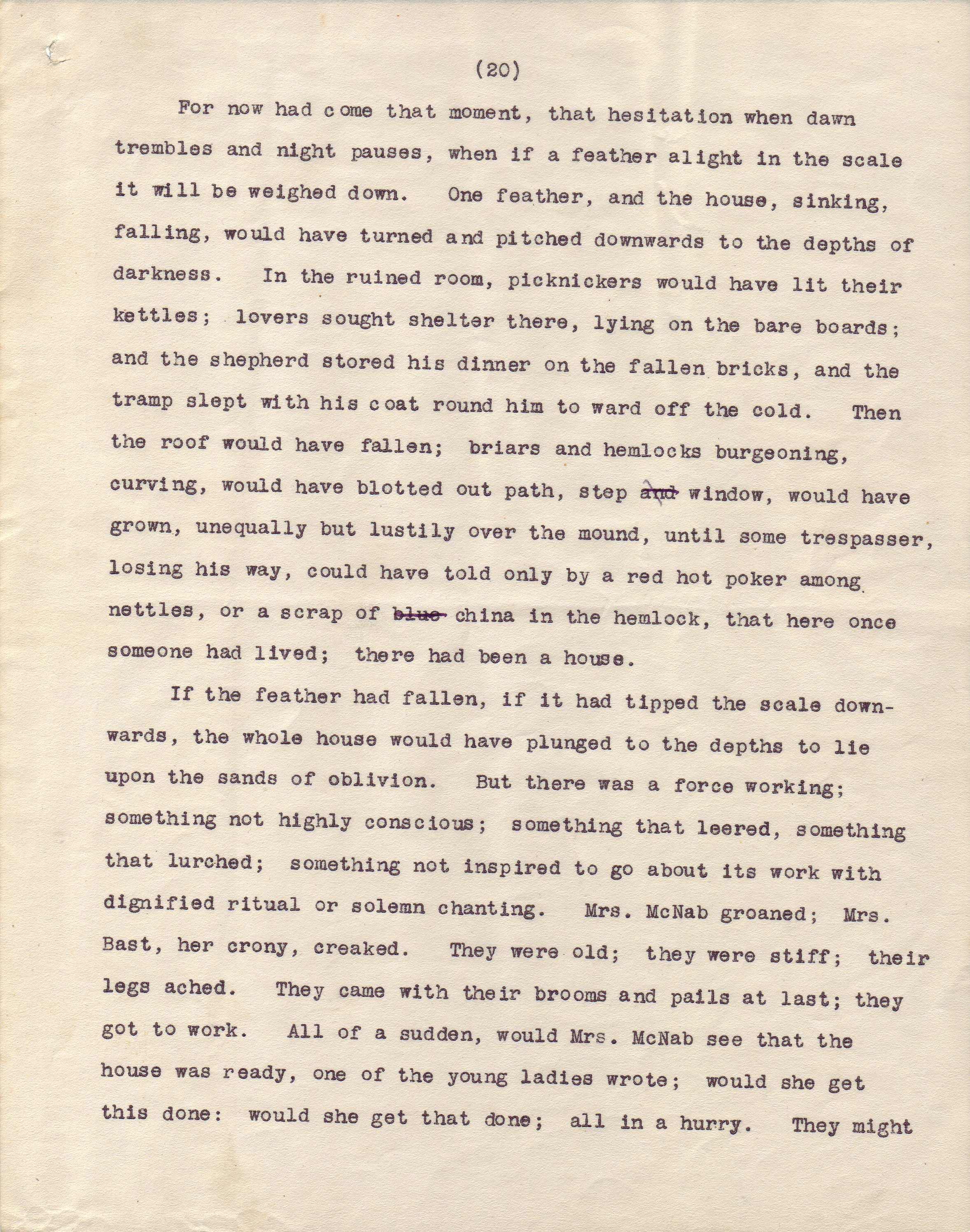Slide to View Image: Opacity 0%

(20)For now had c ome that moment, that hesitation when dawntrembles and night pauses, when if a feather alight in the scaleit will be weighed down. One feather, and the house, sinking,falling, would have turned and pitched downwards to the depths ofdarkness. In the ruined room, picknickers would have lit theirkettles; lovers sought shelter there, lying on the bare boards;and the shepherd stored his dinner on the fallen bricks, and thetramp slept with his c oat round him to ward off the cold. Thenthe roof would have fallen; briars and hemlocks burgeoning,curving, would have blotted out path, step and window, would havegrown, unequally but lustily over the mound, until some trespasser,losing his way, could have told only by a red hot poker amongnettles, or a scrap of blue china in the hemlock, that here oncesomeone had lived; there had been a house.If the feather had fallen, if it had tipped the scale down-wards, the whole house would have plunged to the depths to lieupon the sands of oblivion. But there was a force working;something not highly conscious; something that leered, somethingthat lurched; something not inspired to go about its work withdignified ritual or solemn chanting. Mrs. McNab groaned; Mrs.Bast, her crony, creaked. They were old; they were stiff; theirlegs ached. They came with their brooms and pails at last; theygot to work. All of a sudden, would Mrs. McNab see that thehouse was ready, one of the young ladies wrote; would she getthis done: would she get that done; all in a hurry. They might









